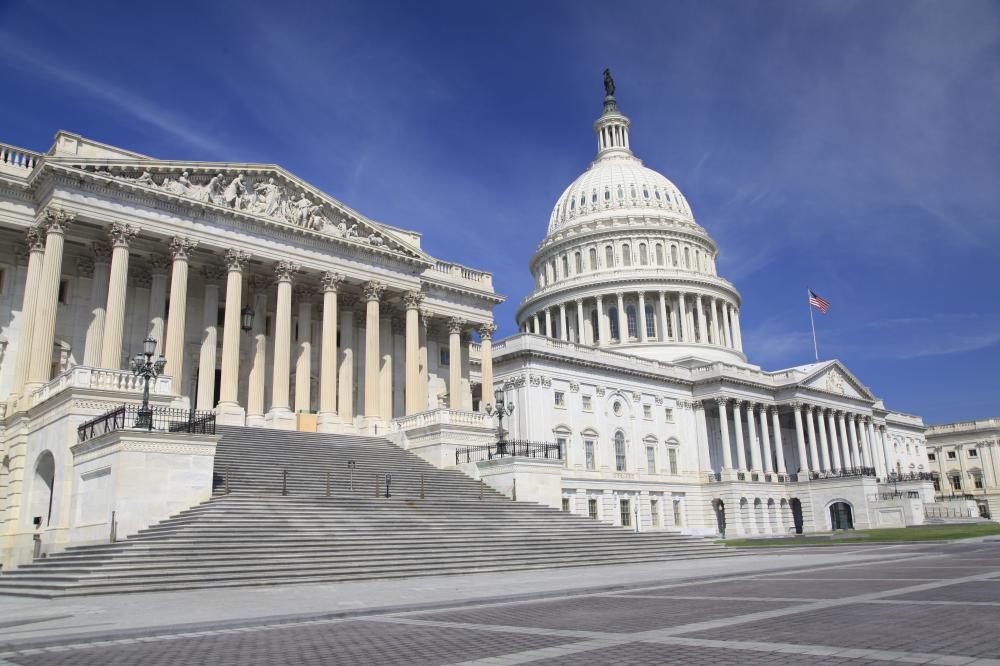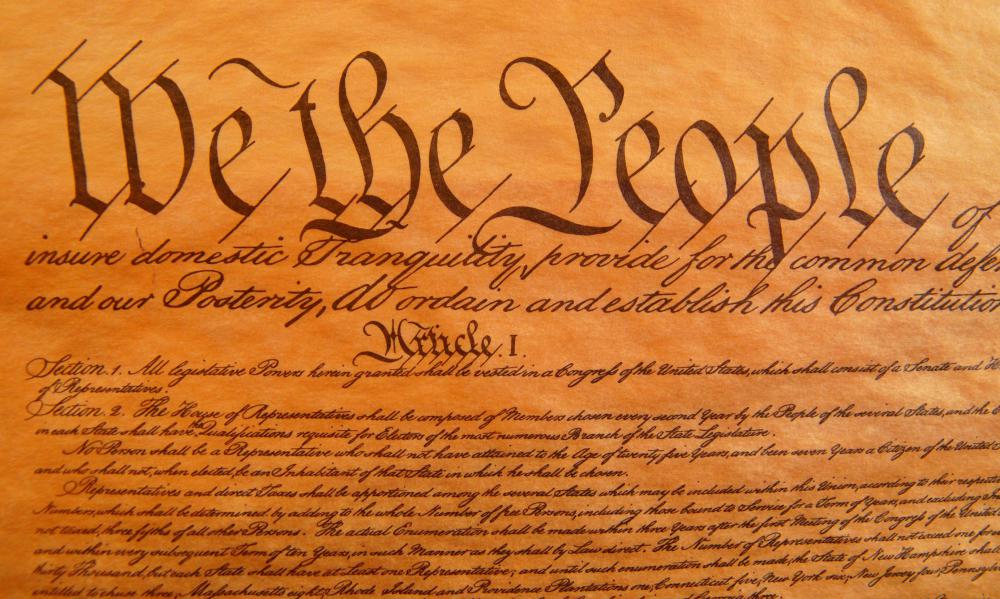At WiseGEEK, we're committed to delivering accurate, trustworthy information. Our expert-authored content is rigorously fact-checked and sourced from credible authorities. Discover how we uphold the highest standards in providing you with reliable knowledge.
What is Legislation?
Legislation can refer to laws or the process by which they are enacted in certain countries. Many countries have some form of legislature, which is a body dedicated primarily to passing and amending laws. In the US, the federal legislature is known as Congress and is made up of the Senate and the House of Representatives. Other countries have similar bodies, such as Parliament in the United Kingdom. Many countries also have local legislative bodies, such as the US state legislatures that are capable of enacting their own statutory laws.
When a piece of legislation is enacted, it is often referred to as a statutory law. This can be contrasted with case law, which is typically derived from judicial rulings. Before a law is enacted, it is often called a bill. Bills are typically proposed or sponsored by one or more legislators and go through a particular process before they become law.

The process by which a law is enacted can differ depending on the government in question. When a bill is first proposed, it may enter some form of preliminary committee where the language is drawn up and certain aspects are decided. It may then need to pass a vote to be brought before the legislative body as a whole. The proposed law is often then discussed in detail by the legislature, and many changes may be made in order for it to be made satisfactory to various political factions. If the bill is able to pass a vote by the entire legislature, it can then be enacted as a statutory law.

Legislation can have a number of different purposes. Laws can be passed to restrict activities, authorize actions, or regulate various things. Many legislatures also authorize the budgets of their respective governments, effectively providing funds to different programs, agencies, and other governmental operations. To this end, laws in many countries will also be created in order to levy taxes on certain activities and events.

Many countries have what is known as a separation of power, where the legislative, executive, and judicial branches are separate entities. This is often used so that each branch can monitor the operations of the others. The US Congress enacts laws, while the judicial branch is able to interpret them and also determine whether they are legal within the confines of the US Constitution. In other countries, there may be differing levels of separation between these branches, or the method for interaction between them may be defined differently.
AS FEATURED ON:
AS FEATURED ON:













Discussion Comments
What can define the legislation actually? Is it only for political purposes?
I think that legislation in general is a bit crazy -- I mean, there are laws on the books that people will never use or reference, but still impact the way certain judgments are made. I don't have an answer to simplifying the whole legislation thing, but it does seem that things have rather snowballed.
Do you all have any kind of crazy legislation in your states (or countries)?
@Suntan12 - I wonder what will happen with that legislation. It is just amazing that legislators can pass a bill without even reading it.
I heard that the bill was over 2,000 pages. I think that this is another reason why the American public is so outraged because they didn’t have time to know what was in the entire bill and the little that they did see they didn’t like.
I know that the Republicans will try to use House legislation to defund the bill, until they have enough votes to override the President’s veto. I know that a lot of people want some sort of reform legislation regarding healthcare but this bill isn’t it.
There are too many free choices that we are giving up not to mention the potential negative effects on our healthcare system with the rationing of healthcare and shortages of doctors.
Most doctors do not support this legislation and about half say they will leave the profession as a result of this bill.
What I think is really interesting with respect to the healthcare legislation recently passed in the United States is that two federal court judges deemed the law unconstitutional yet the law is still in effect.
While the legislative branch does establish laws we do have a check and balance system of government that does not allow them to create any law they would like at will.
Since this healthcare legislation was already found to be unconstitutional we will have to wait until the Supreme Court hears the case and decides the constitutionality of the law.
I think that the biggest argument against that law has to do with the fact that Americans are forced to purchase insurance which is something that the federal government has no right to force its citizens to do. The states argue that they regulate commerce and not the federal government which is their main point.
Post your comments